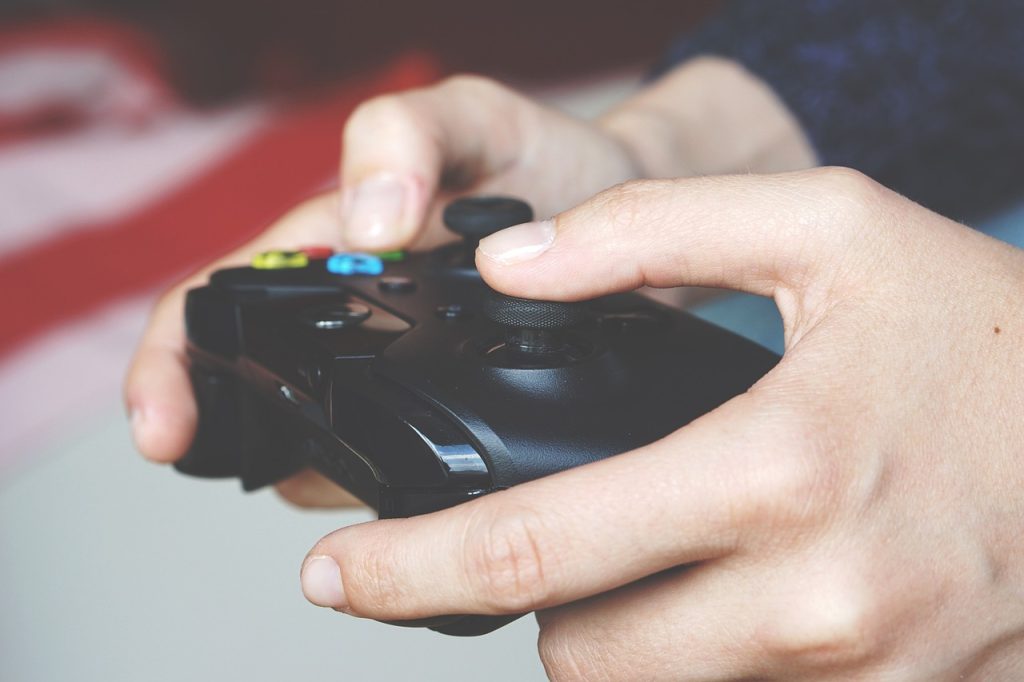Video games have long been seen as a form of entertainment and escapism, offering players an opportunity to immerse themselves in fantastical worlds or compete with others. But over the years, gaming has also evolved into a tool for raising awareness about mental health, breaking stigmas, and providing support for those facing mental health challenges. From helping individuals cope with stress and anxiety to promoting empathy for those with mental health struggles, the role of gaming in mental health awareness is increasingly significant.
1. Gaming as a Form of Stress Relief and Coping Mechanism
One of the most direct ways that gaming impacts mental health is through its ability to help individuals relax and unwind. For many, video games provide an escape from the stresses of daily life. Whether it’s exploring a serene virtual landscape, solving puzzles, or engaging in action-packed gameplay, games offer a temporary reprieve from real-world pressures.
For those struggling with anxiety, depression, or other mental health issues, gaming can provide a safe space to unwind. Games like Stardew Valley and Animal Crossing create calming environments where players can engage in low-stakes activities like farming, fishing, and crafting. These relaxing experiences help reduce feelings of stress and give players a sense of control and accomplishment, offering a much-needed mental break.
2. Games as a Narrative Tool for Raising Awareness
Beyond providing relief, video games have become powerful storytelling tools that address complex mental health issues. Games such as Hellblade: Senua’s Sacrifice and Celeste tackle themes like psychosis, depression, and anxiety in ways that are both empathetic.
Hellblade: Senua’s Sacrifice, in particular, received praise for its portrayal of mental illness, especially its focus on psychosis. The game’s developers worked closely with neuroscientists and people with lived experience to accurately represent the challenges faced by those dealing with mental health disorders. By experiencing the game through the eyes of its protagonist, Senua, players gain insight into what it feels like to live with a mental health condition, breaking down stereotypes and fostering a deeper understanding of these issues.
Similarly, Celeste uses the story of a young woman named Madeline climbing a mountain as a metaphor for overcoming personal struggles, including mental health challenges like anxiety and depression. Through its platforming mechanics, the game lets players experience both the difficulty and the triumph of pushing through personal hurdles, making it an emotionally impactful narrative that resonates with many.
3. Community Support and Social Connection
In addition to providing an emotional outlet, video games foster connections between players, building communities of support for those struggling with mental health. Online multiplayer games and social platforms like Twitch and Discord allow individuals to meet like-minded people who share similar interests and, in many cases, experiences. These communities provide safe spaces for open discussions about mental health, offering support and encouragement to individuals who may feel isolated or marginalized.
For many, the social aspect of gaming can be a crucial part of their mental health journey. Playing with friends or participating in supportive gaming communities can combat loneliness, promote a sense of belonging, and reduce feelings of isolation. Games like Fortnite or Overwatch offer a team-based experience, where players collaborate and communicate, helping build camaraderie and reduce the negative effects of social isolation.
4. Therapeutic Gaming: Games Designed for Mental Health
Therapeutic games—specifically designed to promote mental well-being—have become an emerging genre. These games focus on relaxation, mindfulness, and emotional regulation, aiming to improve players’ mental health. For example, Kind Words (lo fi chill beats to write to) is a game where players send encouraging messages to others, helping to create positive mental states and offering a sense of emotional support. Similarly, Breathe and Calm are apps that incorporate gaming elements to guide players through breathing exercises and mindfulness practices, providing a digital space for relaxation and mental clarity.
Some games are specifically designed for therapy or mental health . Games like SPARX—a computer-based program designed to help young people with depression—combine cognitive behavioral therapy (CBT) techniques with interactive gameplay. These programs aim to engage patients in a fun way while helping them develop coping mechanisms for dealing with depression and anxiety.
5. Breaking Stigmas and Promoting Open Conversations
Gaming has also played a role in breaking the stigma surrounding mental health by sparking open conversations within the gaming community and beyond. As more games address mental health issues in their narratives and gameplay, the conversations about these topics become less taboo and more normalized.
For instance, developers, streamers, and influencers have begun to use their platforms to share their personal struggles with mental health. Many well-known figures in the gaming industry openly discuss how games have helped them cope with their own challenges, fostering an environment where discussing mental health is not only accepted but encouraged. This, in turn, helps reduce the stigma that still surrounds mental health issues and encourages others to seek help.
6. Gamifying Mental Health Education
Video games can also play a role in educating players about mental health, offering a unique and interactive way to learn about conditions like anxiety, depression, and PTSD. Games that focus on mental health education or self-improvement can increase awareness of these conditions and help players better understand how they affect individuals.
Games that integrate mental health content into their mechanics or narrative structure allow players to experience challenges related to mental health, fostering empathy and understanding. Some therapeutic games also provide tools for players to practice self-care, offering guided exercises to reduce stress, improve mood, and enhance well-being.

